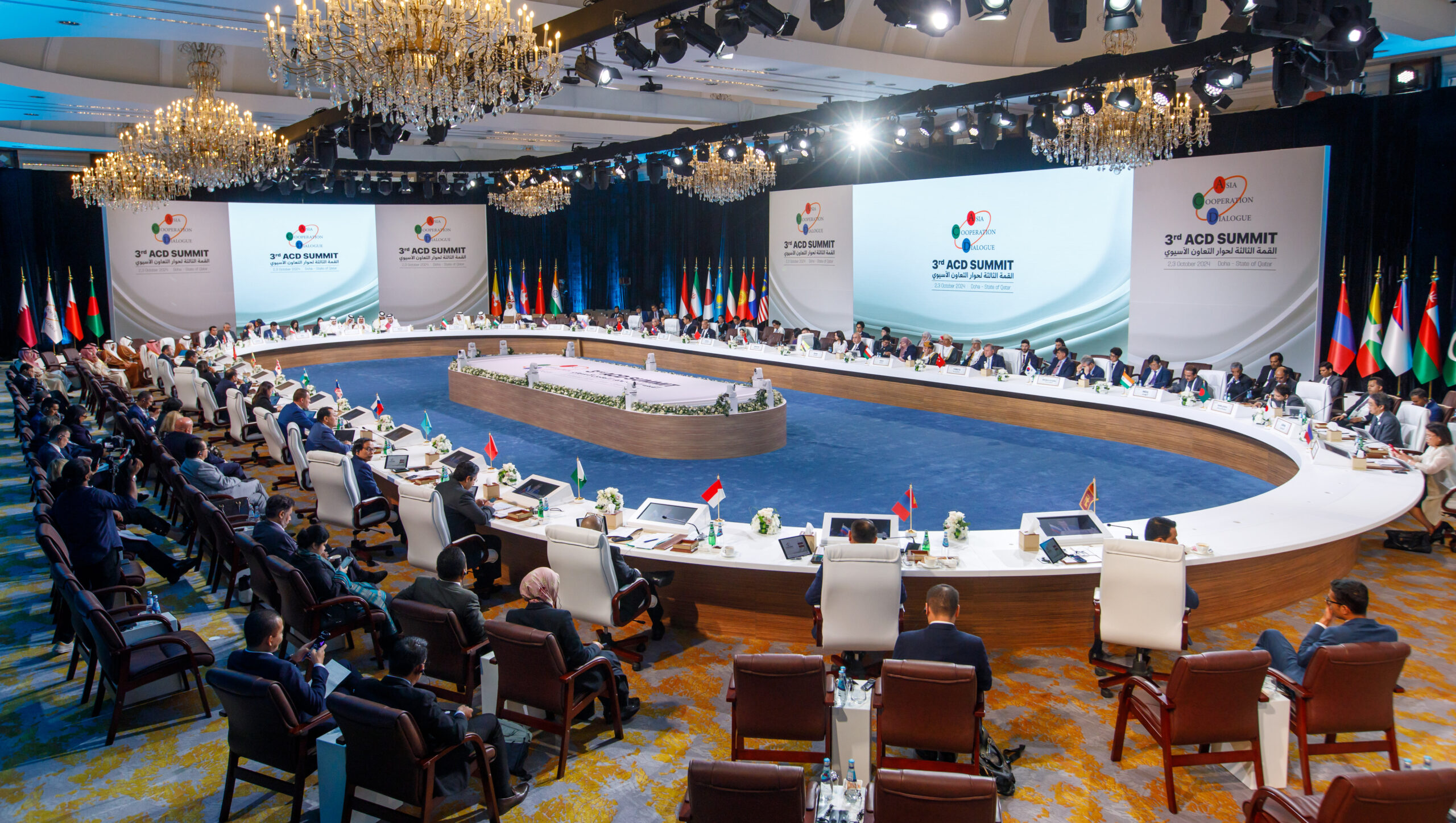The Asia Cooperation Dialogue (ACD) was inaugurated in June 2002 in Cha-Am, Thailand, where 18 Asian Foreign Ministers met together for the first time. The ACD is a continent-wide forum, the first of its kind in Asia. More specifically, the ACD aims to constitute the missing link in Asia by incorporating every Asian country and building an Asian Community without duplicating other organizations or creating a bloc against others. A key principle is to consolidate Asian strengths and fortify Asia’s competitiveness by maximizing the diversity and rich resources evident in Asia. The core values of the ACD are positive thinking; informality; voluntarism; non-institutionalization; openness; respect for diversity; the comfort level of member countries; and the evolving nature of the ACD process.
Since its inception, the ACD has rapidly developed in two dimensions, namely, dialogue and projects.
On the dialogue dimension, ACD Ministers have met annually at the ACD Ministerial Meetings to discuss ACD developments, issues of regional cooperation and ways to enhance and solidify Asian unity. In between, Foreign Ministers also meet on the sidelines of the UN General Assembly in September to update each other on the progress of ACD project cooperation, to hold constructive discussions on international issues of concern and to strengthen the ‘voice of Asia’ in the international arena.
On the projects dimension, currently, many countries have proposed to be prime movers in 20 areas of cooperation, such as energy, agriculture, biotechnology, tourism, poverty alleviation, IT development, e-education and financial cooperation.
At the community level, Thailand hosted the First ACD Think Tanks Symposium in December 2004 and has put together an ACD Think Tank Network composed of academic institutions, development networks and research groups nominated by ACD countries to serve as the academic arm of ACD. The objectives are to conduct in-depth study and support the development of the ACD as well as facilitate prime mover projects.
Thailand initiated the ACD to be a continent-wide cooperative framework guided by positive thinking and the comfort level of participants. The ACD aims to consolidate Asian strengths and fortify Asia’s competitiveness by maximizing the diversity and rich resources in Asia.
Currently, the ACD comprises 35 countries, namely: the Islamic Republic of Afghanistan, the Kingdom of Bahrain, the People’s Republic of Bangladesh, the Kingdom of Bhutan, Brunei Darussalam, the Kingdom of Cambodia, the People’s Republic of China, the Republic of India, the Republic of Indonesia, the Islamic Republic of Iran, Japan, the Republic of Kazakhstan, the Republic of Korea, the State of Kuwait, the Kyrgyz Republic, the Lao People’s Democratic Republic, Malaysia, Mongolia, the Republic of the Union of Myanmar, Nepal, the Sultanate of Oman, the Islamic Republic of Pakistan, the State of Palestine, the Republic of the Philippines, the State of Qatar, the Russian Federation, the Kingdom of Saudi Arabia, the Republic of Singapore, the Democratic Socialist Republic of Sri Lanka, the Republic of Tajikistan, the Kingdom of Thailand, the Republic of Turkey, the United Arab Emirates, the Republic of Uzbekistan, and the Socialist Republic of Viet Nam.
Speakers
Event Statistics
Event Videos









